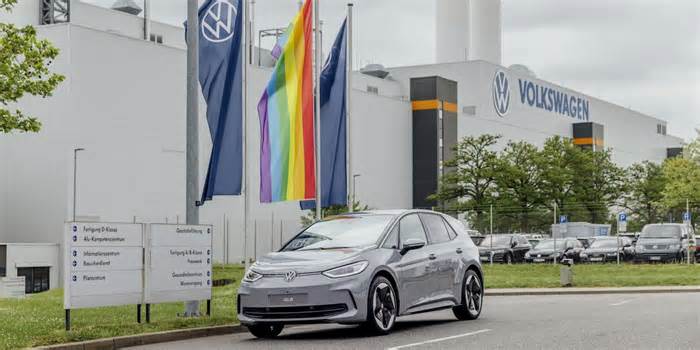Volkswagen’s production of electric vehicles in Germany continues. Volkswagen has announced that it will postpone the production of electric cars at its German plant due to a lack of electric motors.
After halting production of electric cars at its Dresden plant last month, Volkswagen is postponing production of several electric motels at some other plant in Germany.
Volkswagen is postponing the production of electric cars at its Zwickau plant for about three weeks. The reason? Lack of electric motors. A VW spokesperson told Reuters: “The production of electric motors at Volkswagen Group Components’ plant in Kassel is only imaginable to a limited extent lately. “
The production halt will affect the VW Group’s electric models, in addition to the Audi Q4 e-tron (and Sportback) and the Volkswagen ID. 4 and ID. 5 models.
According to the source, the electric VW ID. 3 and Cupra Born are affected by the shortage.
Zwickau is Volkswagen’s largest electric vehicle production site in Europe. The automaker announced an investment of about $1. 3 billion in 2018 in the plant to make electric models.
However, rising interest rates and reduced subsidies are leading to a decline in demand for the VW brand. Volkswagen laid off about 300 workers at its Dresden plant at the end of October, leading to a slowdown in orders.
The news comes after VW already planned to shut down a production line in Zwickau over the holidays due to low demand.
Although electric car deliveries rose 45% in the first few months of the year, the company’s chief financial officer, Arno Antilitz, said electric car orders in Europe had fallen to 150,000, down 50% from last year’s total of 300,000.
VW’s EV sales percentage reached 9% in the third quarter and is on track to reach its target of 8-10% in 2023.
While many headlines talk about a slowdown in demand for electric vehicles due to automakers like Volkswagen, Ford, and GM lagging behind on EV production and targets, that’s not exactly the case.
Higher interest rates, combined with Tesla’s drastic price cuts this year, make it difficult for competition to hold up.
Tesla’s Model Y remained the best-selling car (gasoline or electric) in September, on track to become the world’s best-selling vehicle this year.
Tesla was ahead of the curve and deserves it with higher volumes. By cutting prices, the leader in electric cars is making it harder for its competition to compete.
Meanwhile, Europe accounted for 61% of VW’s electric models sold through September. China is in second place, the company’s highest-earning market. Although deliveries increased (4%) in China, Antilitz said VW could lose market share until the launch of the new EV. Models supplied with XPeng.
Peter Johnson covers the automotive industry’s step-by-step transformation to electric vehicles. He is a seasoned investor, money writer, and electric vehicle enthusiast. His enthusiasm for electric vehicles, primarily Tesla, is one of the main reasons he pursued a career in investing. If he doesn’t tell you about his latest discoveries in the 10K, you can spot him enjoying the outdoors or exercising.

